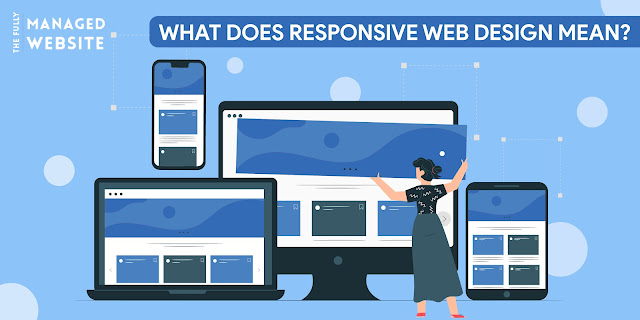What Are The Essential Features For Creating Estate Agency Websites?
Are you looking for lead generation on your estate agency
platform? The below-listed five features will transform your website into a
digital powerhouse.
1. Visually Appealing & Engaging User Interface:
38% of individuals will stop engaging with a website if the
content or layout is not appealing, so every page on an estate agency website design should be aesthetics in mind. From website content to
the placement of CTA's - all functioning in tandem to create an engaging UI
that does not lose its leads within a "boring" experience.
At The Fully Managed Website, we are specialists in estate
agency web design and have launched many highly engaging websites and
optimized them to deliver on lead generation. From content architecture to
strategic CTA position, we can create visually appealing pages that drive leads
to conversions.
2. Quick Loading Speeds:
39% of individuals will quit the website if the images do not
load or take too long to load. Optimizing the content loading time and page
loading time plays a crucial role in generating leads that aren't lost to
competitors. The best-performing websites have impressive load times through
efficient hosting services, compressing non-essential imagery, and much more.
About the lead-generating website, we understand that high
performance is crucial! Whether through server optimization with better hosting
solutions or leveraging browser caches to reduce load times for repeat
customers - our website development team is dedicated to delivering a digital
infrastructure that pushes for efficiency.
3. Cross-Device Optimization:
As indicated by Google, 53% of visitors abandon the websites, if
the loading time is more than 3 sec. Considering that nowadays a significant
part of the online searches takes place through mobile, it has become more
significant, than before for estate agency websites to guarantee their digital
experience doesn't falter.
The Fully Managed Website designed websites are lead-gen
efficient - regardless of the device. Achieving consistency through any dynamic
website designs that rebuild duplicate content to guarantee the best possible
experience is constantly delivered for small business website builders.
Calls to action are strategically repositioning and guiding leads towards
conversions.
4. Having A Robust CRM Database
Understanding your leads is a resource for any estate agency
through collecting data, any estate agency can experience exponential growth.
Estate agencies should point towards making a smooth data funnel
between lead-actions initiated and their database. Such data lends to a higher
ROI in future promotion and can directly target customer profiling as you
have access to knowledge of your lead's needs in the property business.
The Fully Managed Website stay focused and informed on the
latest CRM integrations. Such integrations offer advantages, for example,
up-to-date property listings and spot registration of customer details – based
on the interests taken in a property. Information that awards estate agents the
ability to adapt and offer customer experience.
5. Case-Studies: Social and SEO Proofing
Case studies and reviews act as social proofing, highlighting an
estate agency's quality help to leads - which positively impacts conversion
rates. They are also proof to search engines of your website's credibility.
User-generated content that fits your website's profile highlights in Google,
precisely what your website offers - which helps SEO rankings.
An average website that implements case studies, reviews, and
testimonials experiences a 45% increase in traffic compared with websites that
do not have it. We understand the significance of reviews when developing an
estate agency website. We make it a focus of our own to implement a digital
structure that actively highlights reviews to website visitors.


Comments
Post a Comment